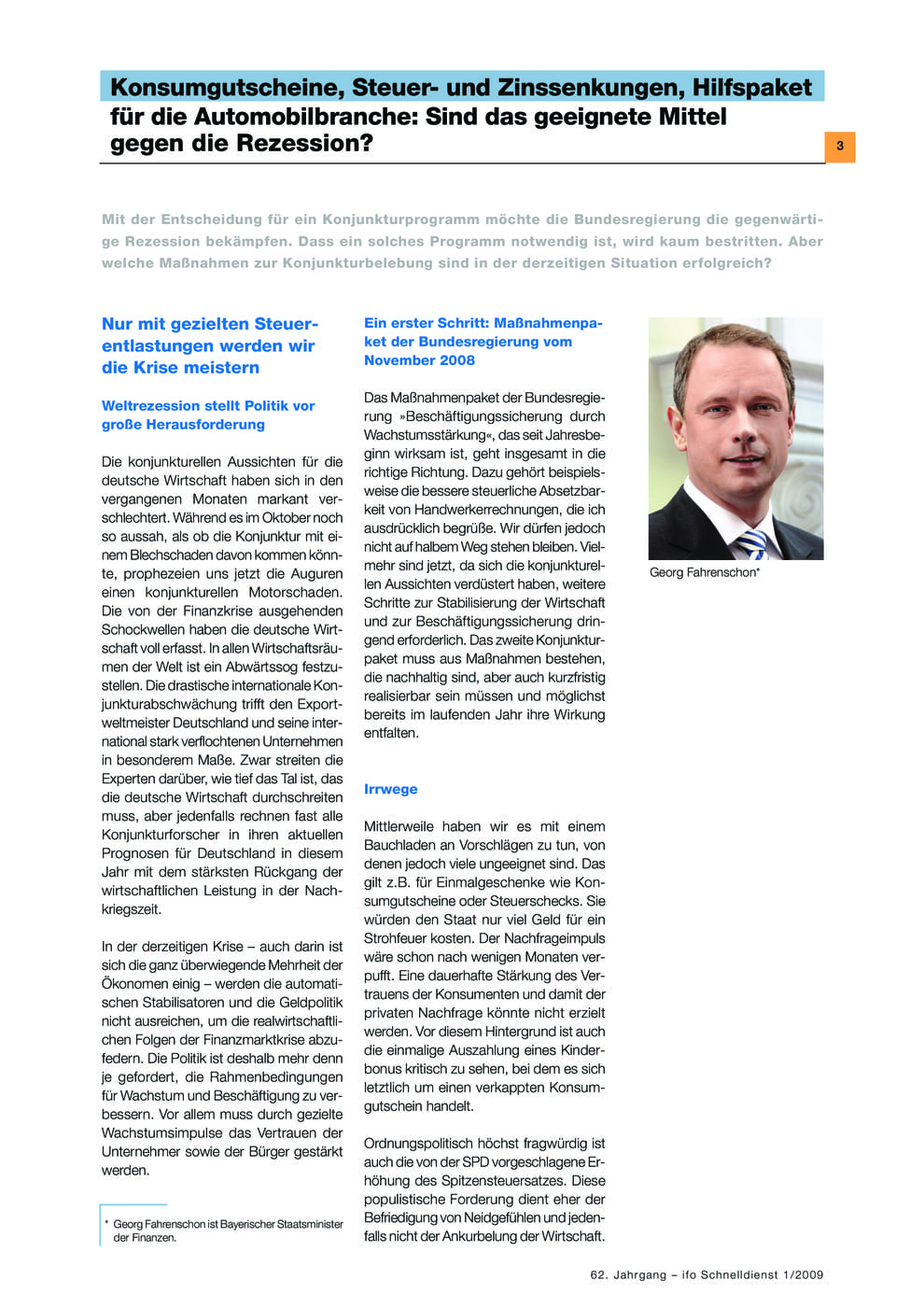Are consumption vouchers, tax and interest-rate cuts, help for the automobile industry suitable measures to stem the recession?
ifo Institut für Wirtschaftsforschung, München, 2009
ifo Schnelldienst, 2009, 62, Nr. 01, 03-15

The German government plans to combat the current recession with an economic stimulus programme. Georg Fahrenschon, Bavarian State Minister of Finance, considers that further steps for the stabilisation of the economy and safeguarding jobs are urgently necessary, but that one-time presents such as consumption vouchers or tax checks make little sense. He is also opposed to increasing the top income-tax rate, preferring tax cuts and stepped-up public-sector investments. For Clemens Fuest, Oxford University, the first major precondition for economic recovery is a functioning banking system and a sufficient supply of the economy with credit. Otherwise, an economic programme to stimulate demand would be ineffective. Fuest argues that a stimulus programme should focus on public investments. This does not have to be limited to road building and the renovation of public buildings; investments in education and research, environmental protection and health care should also be included. Fuest considers the idea of giving companies that encounter difficulties in the current situation financial support to be particularly problematic. There is the danger that the dam will break and mass assistance will pour into companies at the expense of the taxpayer. Also Ralph Brügelmann, Cologne Institute of the German Economy, Berlin office, is against tax checks and consumption vouchers. In general, one must be sceptical about the now planned massive finance-policy intervention, since empirical research indicates that government intervention does more harm than good to long-term growth. Willi Diez, University of Applied Economic and Environmental Sciences, Nürtingen-Geislingen, rejects direct government assistance for the automotive industry. Also programmes designed to stimulate demand only help a relatively small portion of total turnover due to the high export ratio of German car manufacturers. For Diez a government grant for scrapping an old car would be positive on the whole, both in terms of fiscal as well as employment considerations.